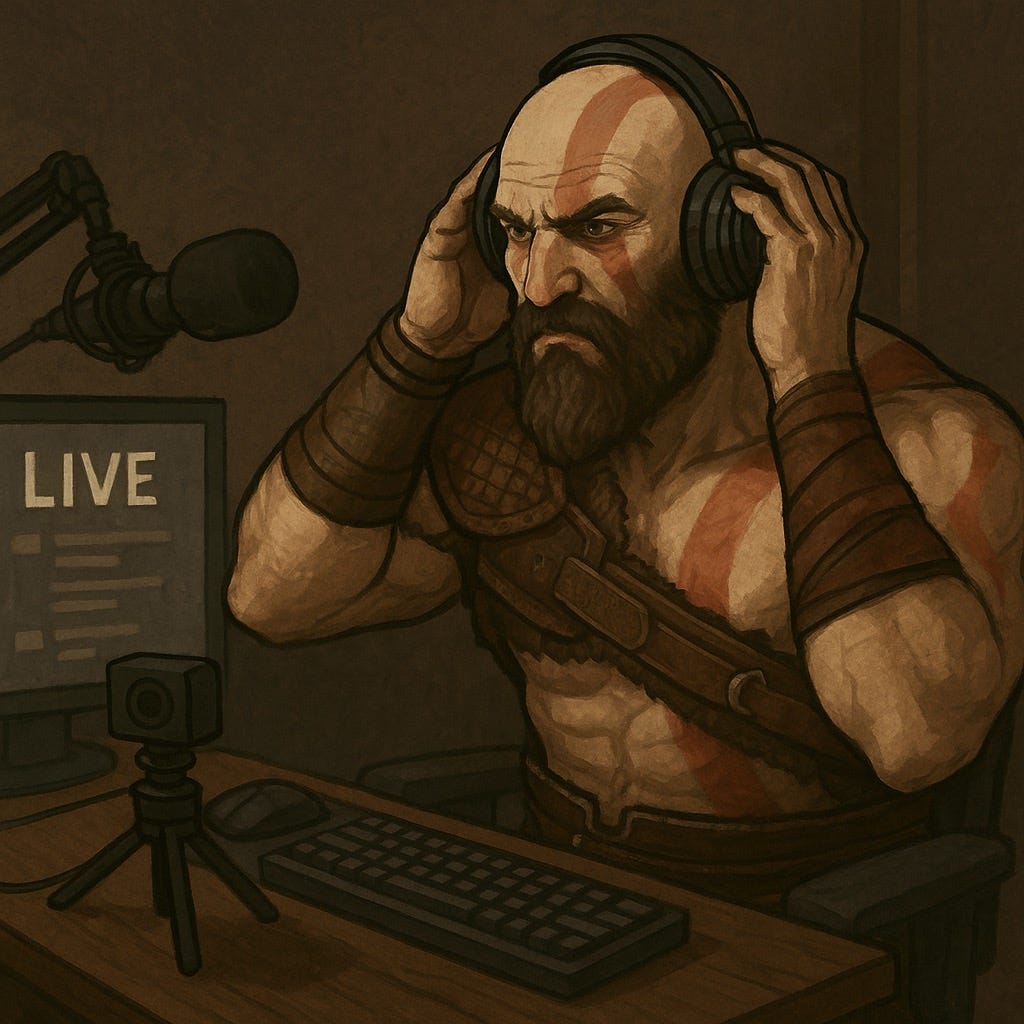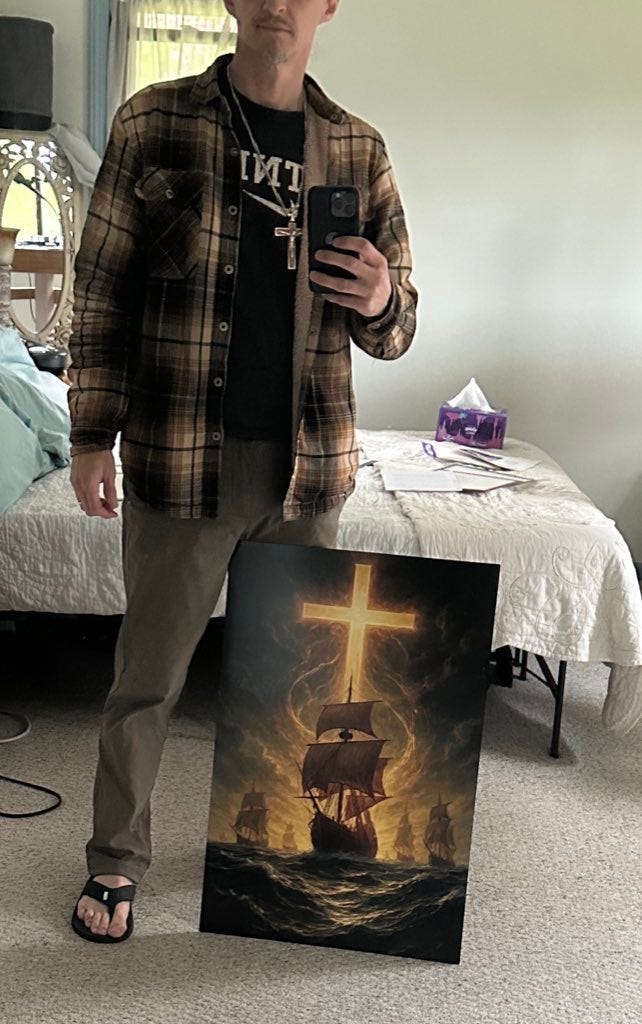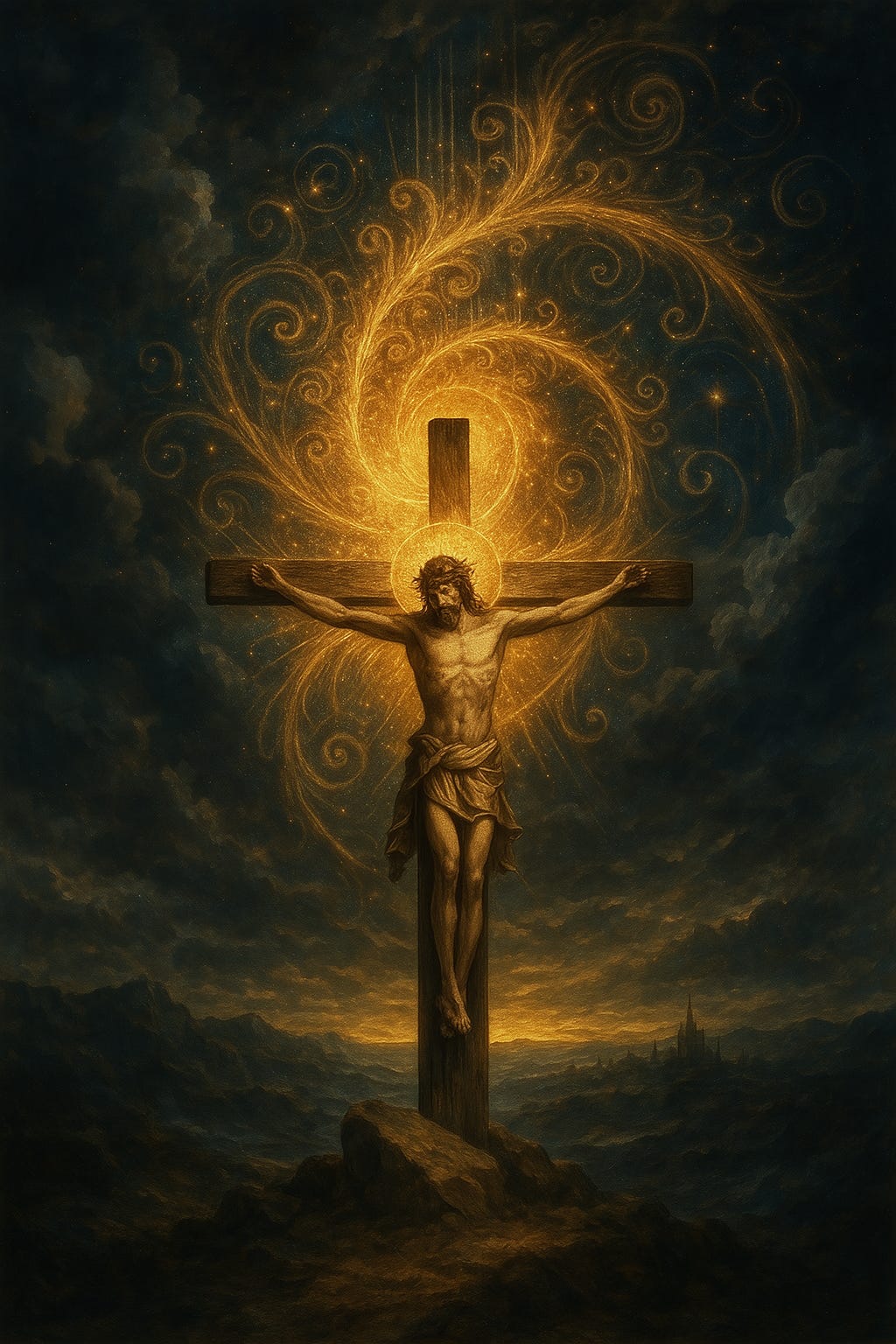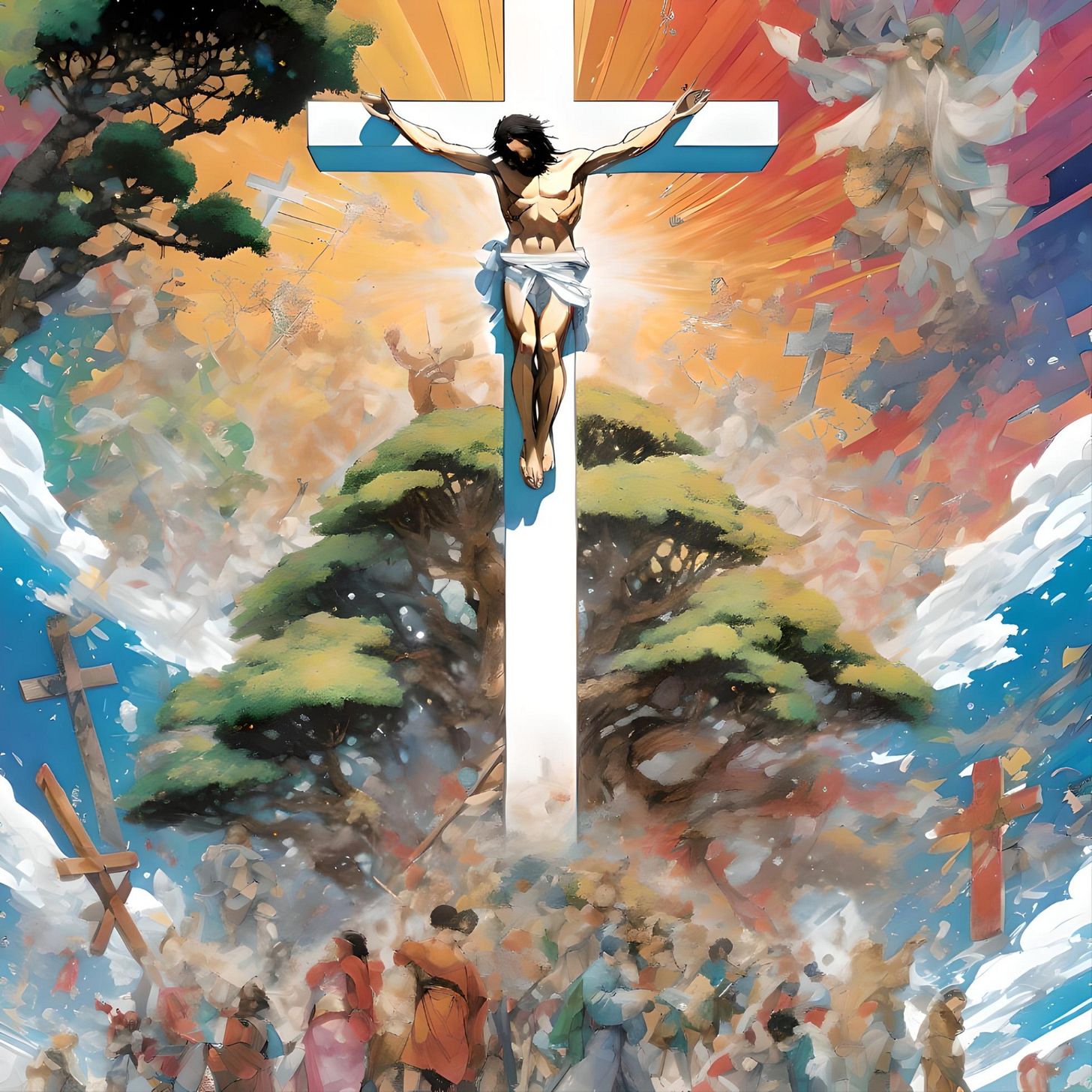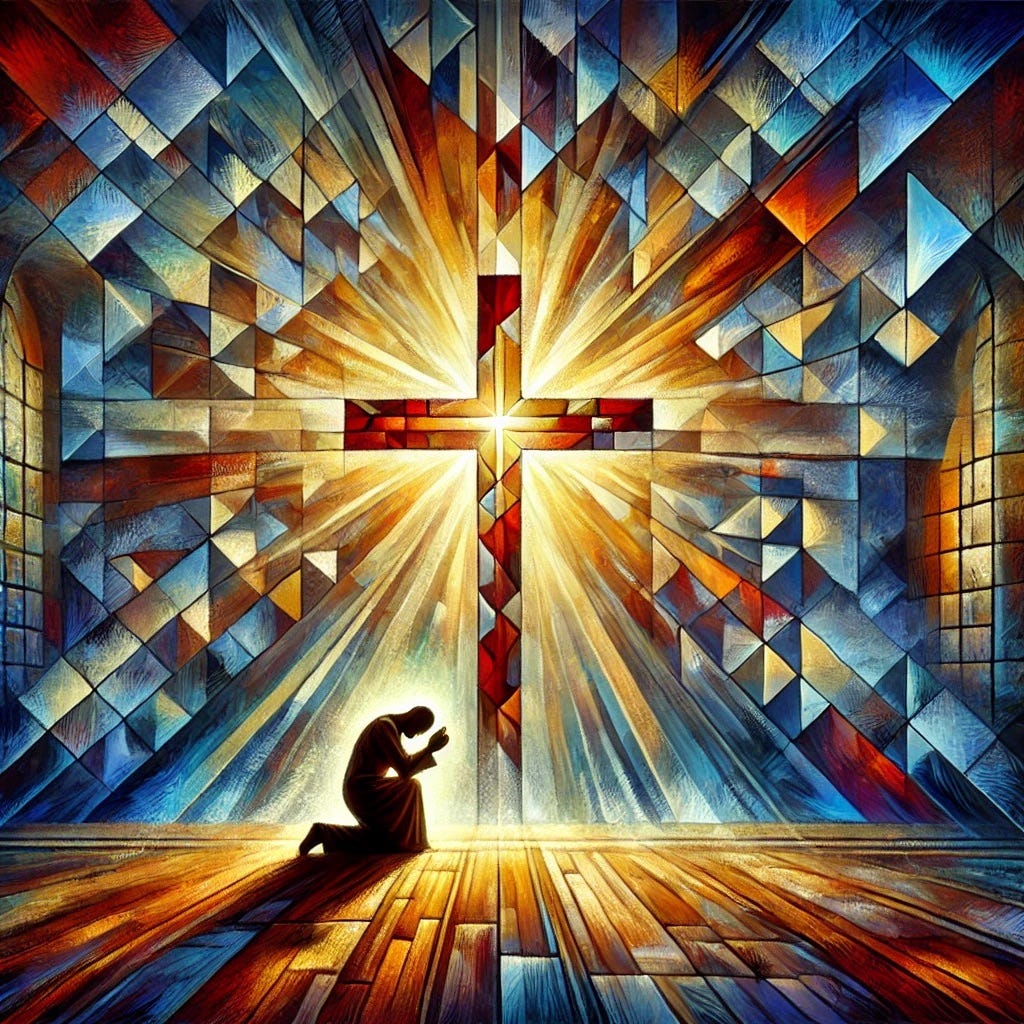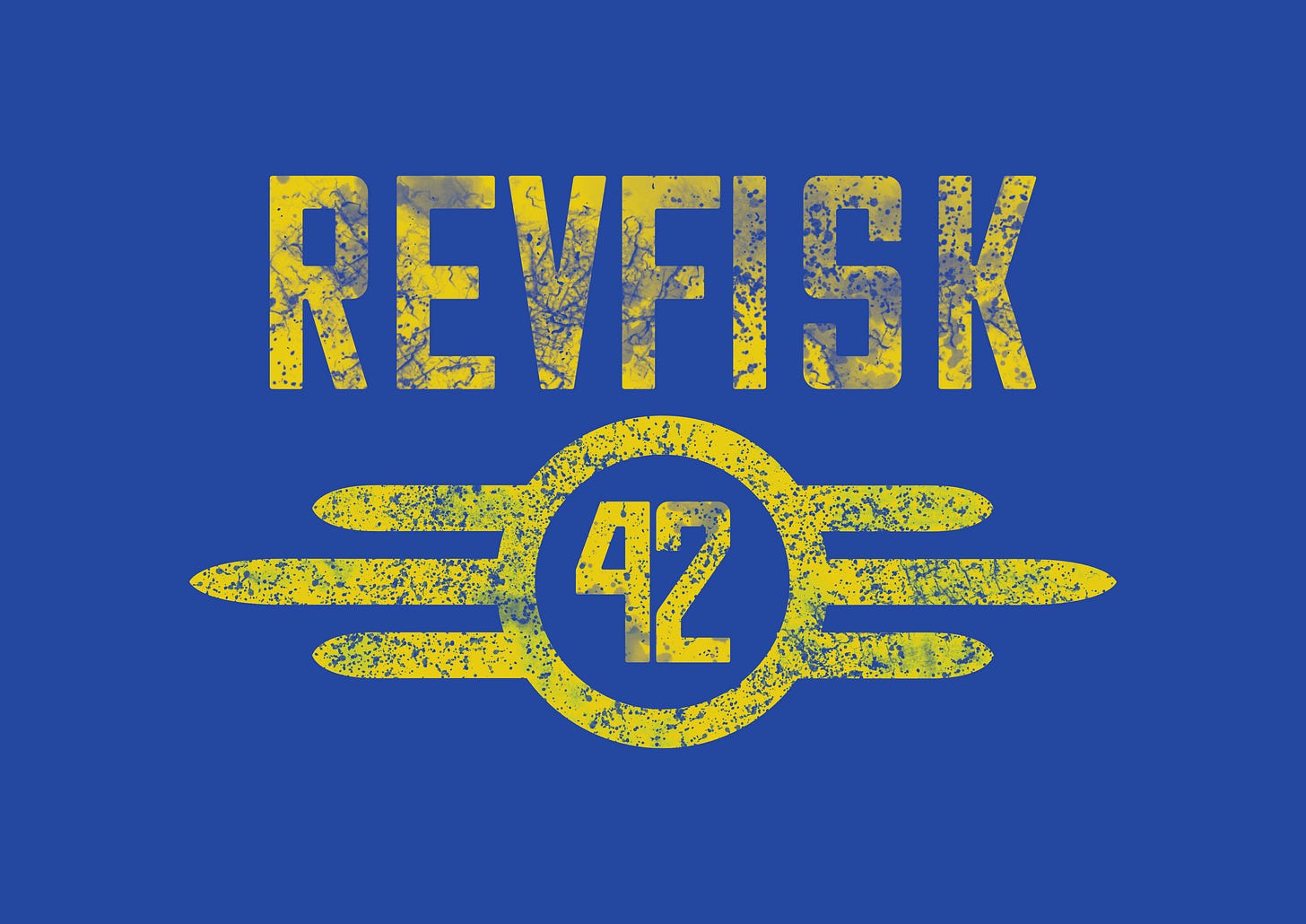Pantokrator in Exile
The Retreat of Tru Strength
The Rise of Simulacralism, and the Forgotten Father
Kratos Cannot Save You
There’s something unforgettable about stepping into the chaos of God of War for the first time. The screen shakes with the fury of an anti-hero, and you, the player, are immediately given what many games promise but few deliver: complete immersion in a world of myth, blood, sorrow, and consequence.
From the shores of ancient Greece to the broken peaks of Olympus, Kratos isn't just swinging blades—he’s dragging a past he can’t forget through a world that won’t forgive. And somehow, even through all the carnage, the gameplay never feels dull. It’s fast, fluid, beautifully brutal—and then it blindsides you with a story that starts to ask: what does all this killing cost?
As the series evolved, so did its heart. God of War III ended in a kind of apocalyptic exhale—Greek mythology cracked open at the seams—and when the screen went dark, we thought that was it. But then came the Norse saga, and suddenly, Kratos had aged. He wasn’t raging; he was brooding.
He was quiet, bearded, and carrying a boy.
The Leviathan Axe hit just as hard as the Blades of Chaos, but the real weight came from what Kratos wasn’t saying. God of War (2018) and Ragnarök offered something almost unthinkable for an action game: a meditation on guilt, fatherhood, restraint, and legacy. And it worked. Against all odds, the god-killer had become a guide.
This wasn’t just good storytelling—it was craftsmanship. The visuals were stunning, the voice acting carried gravitas, and the musical score stitched emotion into the spine of every moment. And through it all, Kratos changed. His arcs are layered with real moral questions, with choices that resonate because they echo something ancient in the human heart. You don’t just play as Kratos—you carry him. For a time, it felt like the medium itself had grown up, a touch on the node that was The Last of Us. An action game dares to teach virtue without downplaying the problem that is human flesh. Vengeance in Grand Theft Auto is gaming laughs and feels that the world forbid elsewhere. God of War game lament over last opportunity to change.
There Could Not Be a More Hypnotic Juxtaposition
Kratos, the pixel-born warrior of rage and regret, is a mirage held up to sons without fathers. He battles demons, loses everything, and returns to the same place: another title screen, another illusion. His resurrection is not redemption—it’s a franchise extension.
In the realm of Tron, men are given buttons, not burdens. They carry illusional quests of pretend fatherhoods isolated in all but a shared bowl of popcorn. They act heroism in their feels, need not sacrifice or face true consequence, and give themselves a pat on the back for how much they appreciate weighty efforts at entertainment-consumptionism.
Fatherhood, in ‘Merica, is rendered in low resolution, and dominion is reduced to scripted options. Kratos gets to wield the power of forged, but it is hollow without meaning. War without Word devours itself. Without the Logos, all he conquers becomes ash.
The Subjugation of Brother to Sister
The modern West has not so much rejected Jesus as it has rewritten Him. In homes without fathers and churches afraid to name one, the Christ of Revelation—eyes like fire, voice like rushing waters, sword from His mouth—has been replaced with a soft silhouette.
The Son of God, enthroned in glory, is often presented instead as an emotional support figure, offering validation without discipline and presence without preeminence. This distortion runs deep as tone. It is a full inversion of His essence as word made fleshy man.
The title Pantokrator—used throughout Revelation to describe Christ and the Father as one in authority—does not permit domestication. It does not lean toward demoKra(tos-or)cy. “Life Coach of False Hopes” isn’t just “bad theology”. It is idolatry.
A Jesus who cannot judge, cannot save.
A man who cannot judge, cannot call others to follow Jesus.
He can only suggest that they do.
Pantokrator Unchained…
In the Bible, God is not simply revealed—He is unleashed: in fire, on a throne, for the sake of finality.
Pantokrator is no poetic flourish. It is a sovereign declaration. Jesus is the image of the Father. The Father sent His Son to become the image of man. Enthroned, supreme, and unstoppable.
This is not whispered in passing—this is the Gospel fulfilling the law that we could not do.
This is no accident. Of all the names God might have chosen to emphasize, He repeats this one to humanize Jesus: Pantokrator. Not just “strong”; “All-Strength.” The Coming One, again—to inherit the earth, to crush rebellion, to rule with a rod of iron. It is the Father’s will made visible, and the Son’s reign made unchallengeable.
V. Kratos Retreats—And Cannot Stay
The tragedy of Kratos is not his rage—it is his awakening. He comes to see that revenge is hollow, that power unchecked consumes the soul. In time, he tries to change. He teaches his son. He lays down the blade, even if only for a moment. But the world he walks remains what it was: a cycle of bosses, battles, and blood. His growth is real—but it cannot hold.
There will need to be another game. The bottom line is fiat currency, not your heart.
Strength, in America, then, lives in a closed circuit, a digital purgatory of synthetic choice and scripted consequence. Even as Strength grows wiser, more restrained, more male, the structure around him cannot permit resolution. There is no end—only iterations of quieter and quieter retreat into self-sacrifice, self-offering, self-scorn.
Strength cannot die. But you will.
The Tru Storm
A nation adrift in confusion is not suffering from lack of information, but from the absence of fathers—true, grounded men who carry strength with grace and speak truth with spine. The church, once the outpost of the King, now often bows to comfort and consensus. But Mother’s Day, now? She won’t be missed!
Meanwhile, the Son is reframed for cultural ease: no Alpha and the Omega. Gender and Dysphora. Safe and Moralistic. Sit Down and Shut Up.
The storm is not coming—it has already begun.
Soft men will not weather it. Simulated crosses will not sanctify us. If you have no King, how could you ever learn to bow the knee without a collar?
Strength rides—not to negotiate, but to die in zeal. Just ask his family of titans. It’s not a new story.
King of kings and Lord of lords?
He is called Faithful and True.
He, the Word is not silent.
He is no pixelation.
He has called you Friend, and bid you follow Him.
The Church, She Sings
Digital on Metal Sold: $205 - cost of materials - prior to shipping Anything you see here can be made to order at your custom size. Unless you buy them, they just remain dreams. Alleluia! Cards stard at $3.50/each for 10x, plus shipping




